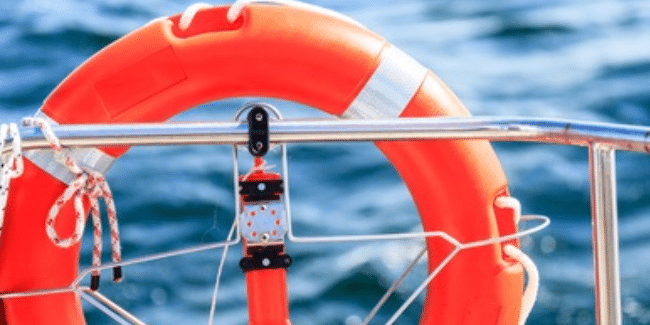Boat safety practices. Remember to always be safe so that you can enjoy the waves in peace!
- Always wear a life jacket.
- Avoid alcohol.
- Be especially careful on personal watercrafts.
- Children younger than age 13 must wear a U.S. Coast Guard approved PFD while underway.
- Enrol in a boater education class.
- Don’t overload your boat.
- Operate at a safe speed.
- Always have a passenger serve as a lookout in addition to the operator.
- Watch out for low water areas or submerged objects.
Always Wear a Personal Flotation Device (PFD) or Life Jacket
Most boating fatalities are usually found without wearing a PFD.
Always carry extra PFD’s in both adult and child sizes.
Children younger than 13 years old must wear a PFD to always be safe.
Avoid Alcohol
The probability of having an accident on-board doubles when alcohol is involved. Have fun, but not too much fun that will have deadly outcomes.
Operating a boat under the influence is just as dangerous as driving a car after you’ve been drinking.
Boating while intoxicated (BWI) is strictly enforced and carries penalties similar to driving while intoxicated penalties, including possible Driver’s License suspension.
Operate at a Safe Speed
It is a good idea for the whole family to enrol in a boater education course. Having awareness of all surroundings and procedures will ensure more safety for all passengers. A majority (52%) vessels involved in boating accidents are operated by persons 26-50 years of age.
Don’t overload your boat
Obey the weight capacity the boat holds so as to avoid all floods and catastrophic outcomes. All boat vessels come with suggested weight capacity to carry while at sea. Do not ignore it.
Operate at a Safe Speed
Use common sense, and operate at a safe speed at all times — especially in crowded areas. Excessive speed or reckless operation is not needed whilst at sea, just like driving a car!
Excessive speed is a rate of speed greater than is reasonable or prudent without regard for conditions and hazards or greater than will permit a person to bring the boat to a stop within the assured clear distance ahead.
Yacht safety is not unlike general boat safety. The safety equipment for yachting may be extensive, but these tools can help make sure that all of the passengers stay safe. In addition to life jackets, yachts should have search lights that will enable the driver to see better after dark or during extreme weather conditions. Search lights should be powered both by batteries and by the vessel’s power system.
An emergency steering system is a good idea, as it can serve as a backup tiller in the event of a system failure. ‘’Man-overboard’’ equipment should include components that will make it easier to retrieve a person who falls overboard. Other safety equipment that should be on board includes fire extinguishers, flares, bilge pumps, and a two-way radio for communication. In addition to having these items, crew members must know how to use all of the safety equipment so that they can act quickly if there is an emergency.
The GAP Vassilopoulos Group acts as Brokers through their well-established relationships with international ‘A’ Rated insurers’ as well as the local Cyprus market can cater for a wide range of Yacht/Boat risks and for all types of crafts no matter how small or large.
Ready to request a yacht or boat insurance quote? Drop us an email through our website or feel free to contact us at 77 77 77 75 to compare and select the most appropriate yacht insurance policy. Our GAP Insurance Agency team will discuss further information with you.
